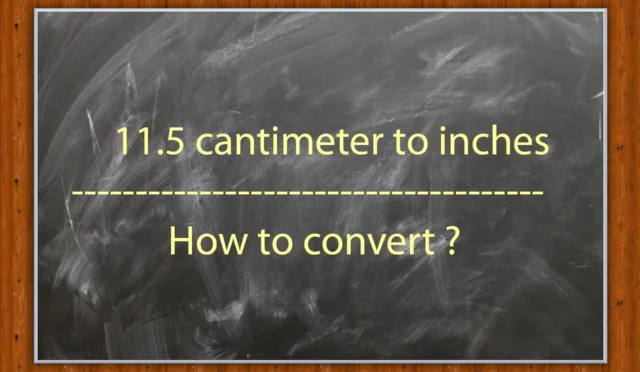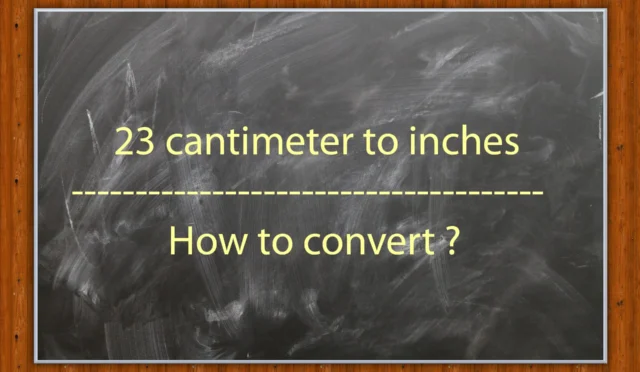12 cm to Inches: A Simple Conversion Guide
If you’re dealing with measurements in both metric and imperial systems, chances are you’ve had to convert centimeters to inches at some point. While it may seem like a simple task, understanding the conversion process can save you time and effort in the long run. In this article, we’ll cover everything you need to know about converting 12 centimeters to inches, including the formula, common conversions, and helpful tips.
1. Understanding the Basics: What are centimeters and inches?
Before we dive into the conversion process, it’s important to understand the basic units of measurement we’re dealing with. Centimeters (cm) are a unit of measurement in the metric system, commonly used in countries outside of the United States. On the other hand, inches (in) are a unit of measurement in the imperial system, used predominantly in the United States.
2. The Formula: How to convert 12 cm to inches
To convert 12 cm to inches, we need to use a conversion formula. The formula is as follows:
12 cm = 4.7244 in
This means that 12 centimeters is equal to 4.7244 inches. It’s important to note that this is an approximate conversion and may vary slightly depending on the rounding method used.
3. Converting Other Measurements: Common conversions to know
While converting 12 cm to inches is a common task, you may need to convert other measurements as well. Here are some common conversions to know:
- 1 cm = 0.3937 in
- 1 in = 2.54 cm
- 10 cm = 3.937 in
- 20 cm = 7.874 in
- 30 cm = 11.811 in
- 40 cm = 15.748 in
Knowing these conversions can save you time and effort when dealing with measurements in both metric and imperial systems.
4. Helpful Tips: Making the conversion process easier
Converting measurements can be a tedious process, but there are a few tips you can use to make it easier:
- Use a conversion tool: There are numerous conversion tools available online that can quickly convert measurements for you.
- Round to the nearest decimal place: If you’re not dealing with exact measurements, rounding to the nearest decimal place can make the conversion process simpler.
- Memorize common conversions: Memorizing common conversions, such as 1 cm to 0.3937 in, can save you time in the long run.
5. The Bottom Line: Why knowing how to convert is important
Whether you’re a student, scientist, or simply dealing with measurements in your daily life, knowing how to convert between centimeters and inches is an important skill. It can save you time and effort, and prevent mistakes that could have serious consequences.
FAQs
- Why do we need to convert measurements? Knowing how to convert between different units of measurement is important for a variety of reasons, including academic studies, scientific research, and everyday life situations.
- Is there a simple way to convert between centimeters and inches? Yes, there is a simple formula that can be used to convert between centimeters and inches. Simply multiply the number of centimeters by 0.3937 to get the equivalent in inches.
- What are some common conversions to know,
- Are there any online tools available for converting measurements? Yes, there are numerous online conversion tools available that can quickly and accurately convert measurements between different units.
- Can I use an approximate conversion for everyday measurements? Yes, for everyday measurements, an approximate conversion is often sufficient. However, for scientific or technical measurements, it’s important to use a precise conversion.
Conclusion
Converting between different units of measurement can be a confusing and time-consuming process, but understanding the basics and using helpful tips can make it easier. Knowing how to convert 12 cm to inches, as well as other common conversions, can save you time and effort and prevent mistakes. By mastering this simple skill, you can make your academic, scientific, and everyday life easier and more efficient.






